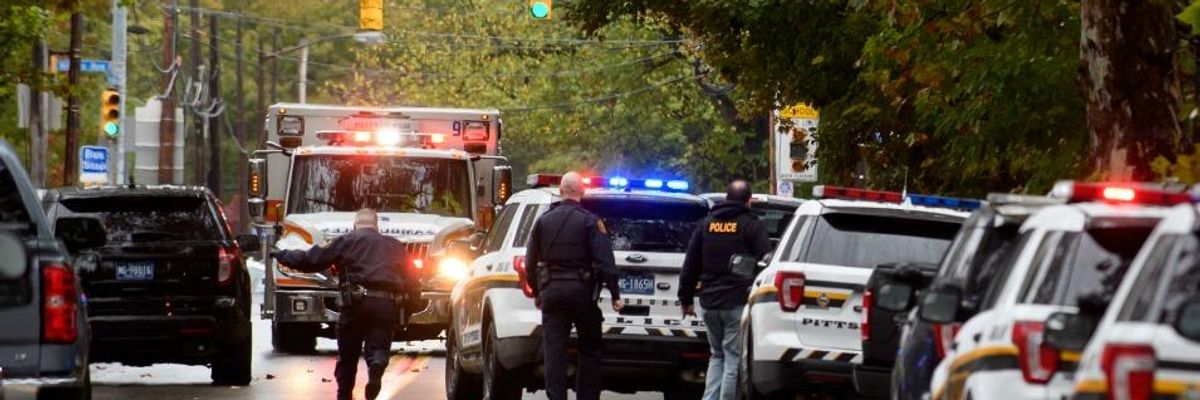A new study shows that media outlets frequently echo the instinct of political leaders like President Donald Trump when they refuse to label the violence of far-right assailants as "terrorism" while showing significantly less reluctance if an attack was carried out by an Islamic extremist.
The British media monitoring firm Signal AI found that most news sources are quick to draw links between incidents identified as "Islamist" attacks and terrorism, but are far less likely to do the same when an attack suspect is linked to far-right ideologies like white nationalism.
"Reporting on Islamic extremist attacks is quantifiably different to reporting on far-right attacks," wrote Ben Moore of Signal AI.
Suspected attackers claiming allegiance to the Muslim faith were three times as likely to be called terrorists, according to Signal AI, with 78 percent of the reports the group studied identifying them as such.
Meanwhile, far-right attackers were only called terrorists 24 percent of the time in the 200,000 broadcast scripts and news articles the group read, all of which had been aired and published in the last two years.
On social media, many critics were unsurprised to read Moore's findings but took the report as a call to action for media organizations.
The study noted that reporting on the mosque attacks in Christchurch, New Zealand last month were a notable exception.
Prime Minister Jacinda Ardern immediately labeled the attacks as acts of terrorism and disavowed the suspect, who holds white nationalist views. As a result, Signal AI found, news outlets called the suspect a terrorist far more than they generally have when an attacker represents the far right.
"The Christchurch shooting is actually exceptional in how willing the media were to label the shooter a terrorist," reported Moore.
"We can see the impact [of] Ardern's comments in real-time coverage of the shooting," the study added. "The example set by Ardern immediately filtered into the media. Before her comments few publications labeled the attack terrorism; after them, few did not. Ardern's voice was powerful in setting the tone for the response to the attack."
Ardern's decisive action after the attack contrasted sharply with Trump's statement of sympathy for the white supremacists who staged a violent rally where an anti-racist protester was killed in 2017; and his refusal to call a white supremacist who killed 11 people in a Pittsburgh synagogue last year a "terrorist"--while he has immediately done so after attacks perpetrated by people pledging allegiance to ISIS.
"Influential figures may have the ability to shift the narrative around events and topics," reported Moore. "Spokespeople's language filters into the media and, likely, into public dialogue."
